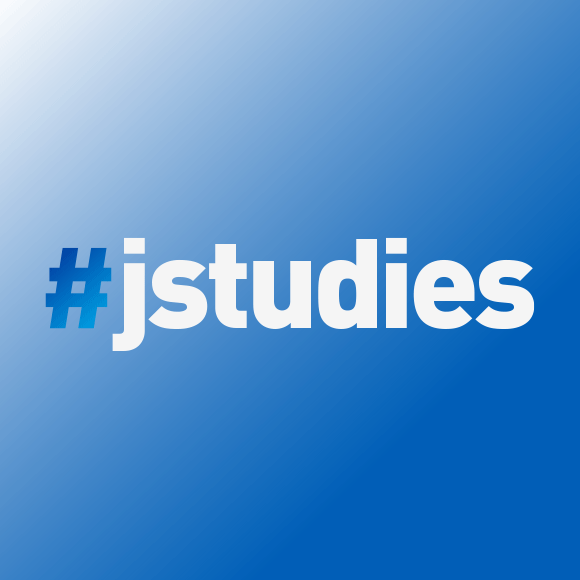
‘Beyond Japanese Studies’ Symposium for Early Career Scholars
Beyond Japanese Studies Symposium: Challenges, Opportunities and COVID-19
Considering strategies that early career Japan scholars can use to boost the reach and relevance of their research.
Overview
This symposium is designed to respond to challenges, opportunities and needs in the academic landscape which have resulted from, or been intensified by, the effects of COVID-19.
Japan-interested scholars must today consider how their work intersects with ‘global studies’, Asian Studies, and trans-national and trans-cultural aspects of the human, natural, economic and physical world. They must also seek to broaden the regional and global relevance of their work by better connecting with colleagues across borders. Taking “Beyond Japanese Studies” as its theme, this symposium aims to bring early career researchers together to share their research with a wider audience and to consider strategies that Japan scholars can use to thrive.
The symposium will be convened online by The Japan Foundation, Sydney (Eora nation, Gadigal land) and the Japanese Studies Department at the University of New England (UNE; Anaiwan country, shared with Gumbaynggirr, Kamilaroi and Dhunghutti nations).
Presentation is open to all early career scholars, from postgraduates to recent PhD graduates (up to seven years post-PhD; non-tenured) in Australia, New Zealand and the broader Asia-Pacific region (including the US) whose research is related to Japan. Attendance is welcome from anyone in the Asia-Pacific region with an interest in Japan-related scholarship.
This symposium seeks to consider how Japan-interested early career researchers (ECRs) may develop their careers. It builds on a recent online roundtable discussion titled “The Rebirth of Japanese Studies”, held in mid-2020 in conjunction with the US Association of Asian Studies (AAS).
“The Rebirth of Japanese Studies” roundtable identified some critical areas for the revitalisation of the field:
- Actionable solutions / future directions
- Importance of fostering communication, collaboration, and accessibility to productively move forward as a community “linked by the fluid canopy of Japanese Studies”
- Importance of Japan specialists pursuing positions beyond Japanese Studies
- Importance of preparing young scholars to be able to do the above
- Importance of including/acknowledging a broader range of voices in Japan-related scholarship
Responding to the background outlined, the symposium will contribute to an urgent and ongoing global conversation about prospects and avenues for thinking ‘Beyond Japanese Studies’ from an Australian/Asia-Pacific perspective.
Early-career scholars are invited to submit an abstract for a 20-minute presentation from their own research, touching upon the theme of the symposium, Beyond Japanese Studies, and considering one or more of the following questions:
- How does my research intersect with/contribute beyond Japanese Studies to other disciplines, regions, cultural traditions or philosophies?
- How will or has my research develop(ed)/broaden(ed)/change(d) due to the multiple impacts of COVID-19 and/or other future challenges such as Climate Change/the Anthropocene?
- How does my research assist in considering the future after 2020?
- How does my research broaden our understanding of Japanese Studies?
- How do/can I advocate for/articulate the value of my research to society beyond the Japanese Studies academy?
- What are some broad or specific applications/implications of my research for society in Australia, New Zealand, and the wider Asia-Pacific?
Contributions are welcome from a broad range of disciplines, including anthropology, art history, economics, history, linguistics, literature, media studies, musicology, and from a range of locations.
An honorarium of AU$100, kindly sponsored by the University of New England and The Japan Foundation, Sydney, will be offered for all presenters at the symposium (maximum of 12).
The two-day program will include panel presentations by ECRs which address the conference theme, a ‘collaborative research’ session touching on topics such as publishing, funding and social media, and meet and greet sessions.
The symposium will begin with a presentation by keynote speaker Professor Gracia Liu-Farrer (Waseda University) in line with the ‘Beyond Japanese Studies’ theme.
Following the symposium, selected presenters will be invited to write a paper for inclusion in a related Special Issue of New Voices in Japanese Studies (NVJS), with an envisaged publication date of September 2021. NVJS is an open-access peer-reviewed journal which specialises in providing a platform for emerging researchers, and is published by The Japan Foundation, Sydney. Presenters will be required to submit a 1,000-1,500-word summary of their presentation by the date of the symposium in order to be considered for this upcoming Special Issue of NVJS, to be guest edited by Dr Gwyn McClelland (University of New England).
If selected, presenters will be asked to submit a 5,000-word article to NVJS by April 28, 2021.
For further information about the NVJS Special Issue, see the NVJS website.
Jan 18: Abstract submission deadline (5pm AEDT)
Jan 22: Decisions sent out to presenters
Feb 18-19: Online symposium; presenters submit 1,500 word draft for NVJS Special Issue consideration.
Early Mar: Authors notified of selection for NVJS Special Issue
End Apr: NVJS submissions due
May: Peer-review & feedback
Jun-Aug: Author rewrites, review & editing
Sep: Article layouts
End Sep: NVJS Special Issue publication
Eligibility Criteria for Presenters
- Non-tenured early-career scholar (up to seven years post-PhD)
- Based in, or from, Australia, New Zealand and the broader Asia-Pacific region (including the US)
- Research is related to Japan.
Submit an Abstract
Abstracts should be submitted via the online submission form below. When you submit your abstract, you will be asked to provide the following information:
- Title of proposed presentation
- Abstract (maximum 350 words)
- Short Biography
- Date of PhD if already conferred or expected date of PhD submission (to confirm eligibility)
- Current employment status (to confirm eligibility)
- Preferred/suggested discussion topics for the collaborative seminar on Day 2
- Whether you would like to be considered for the New Voices in Japanese Studies special issue
(Abstract submissions are now closed.)
Keynote
Making Japanese studies more central to academic discussion
Professor Gracia Liu-Farrer, Graduate School of Asia Pacific Studies, Waseda University
Because of the Western orientation of historic academic disciplines, research about Japan, a non-Western society, tends to be labeled as area studies. Scholars who research about Japanese culture and society consequently find their audience narrowly limited to fellow anthropologists, political scientists, or historians who specialize in Japan. This is sometimes frustrating because our work about Japan is not only about Japan, and not only relevant to Japan, but also is intended to make empirical and theoretical contributions to the disciplines and the subject fields in which we work. It is therefore important to consider how we can make our Japan-centered research relevant to the broader academic fields. This presentation discusses possible strategies to make Japan not only a relevant empirical case, but also central to conceptual and theoretical development in our respective subject fields and disciplines.
Speaker Profile

Gracia Liu-Farrer (Ph.D. Sociology, University of Chicago), is Professor at the Graduate School of Asia-Pacific Studies, and Director of Institute of Asian Migration at Waseda University, Japan. Her research examines immigrants’ economic, social and political practices in Japan, and the global mobility of students and professional migrants. She is the author of books Labor Migration from China to Japan: International Students, Transnational Migrants (Routledge, 2011), Handbook of Asian Migrations (co-edited with Brenda Yeoh, Routledge, 2018), and Immigrant Japan: Mobility and Belonging in an Ethno-nationalist Society (Cornell University Press, 2020). She has also published over 50 book chapters and journal articles in leading migration and area studies journals.
Hear Professor Liu-Farrer discuss her background and career trajectory in this video (via Waseda University).
EVENT DETAILS
February 18-19 (Thu-Fri), 2021 (AEDT)
Online (via Zoom)
Free; registration essential.
Journal Special Issue
A #BeyondJapan21 journal special issue is scheduled for publication in September 2021. Subscribe here to be notified when it is released.
Symposium Progam
Stay Informed
Follow the symposium on Twitter:
Download Flyer
Shortlinks
une.edu.au/beyondjapan21
sydney.jpf.go.jp/beyondjapan21
#beyondjapan21
ENQUIRIES
For further information, please contact the Japanese Studies department at:
Main image: Benjamin Suter via Unsplash
This symposium is organised by the University of New England and The Japan Foundation, Sydney.
The related special issue will be published in the journal, New Voices in Japanese Studies.






